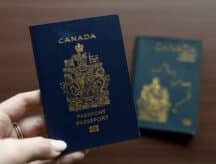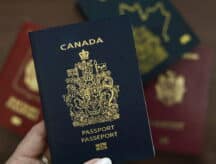New Canadians now pledging allegiance to King Charles in Oath of Citizenship
New Canadian citizens are now pledging allegiance to King Charles after Queen Elizabeth, the longest-serving monarch in British history, passed away last Thursday.
CBC News told the story of Jeffery Sachs who was among the first Canadians to acknowledge the new King during the Oath of Citizenship. News of the Queen's death came about an hour before Sachs and a number of others were expecting to swear their oaths at a virtual citizenship ceremony. Although Sachs was expecting a scramble to change the wording of the oath, he said the ceremony went on seamlessly.
Sachs told CBC News that being a part of the abrupt changeover was a "remarkable experience."
Schedule a Free Canadian Citizenship Consultation with the Cohen Immigration Law Firm
Although the Canadian government website still acknowledges Queen Elizabeth (as of the date of publication), IRCC told CIC News that written references to the citizenship oath will be changed "in due course."
"Following the passing of Her Majesty Queen Elizabeth II [on September 8], the reference to Her Majesty in the Oath of Citizenship was amended to refer to King Charles III. This change was made in accordance with the Interpretation Act and applies to all citizenship ceremonies going forward," an IRCC spokesperson said in an email. "The Citizenship Act and written references to the Oath of Citizenship will be formally amended in due course."
Taking the Oath of Citizenship at a citizenship ceremony is the final step that permanent residents must take to become Canadian citizens.
About taking the Oath of Citizenship
According to the Canadian government website, permanent residents aged 14 and older must attend a citizenship ceremony and take the oath.
Children under age 14 do not have to attend, although they are welcome. In cases where these children do not attend, parents will get certificates of citizenship for them at the ceremony.
During the ceremony, a judge or citizenship official will lead the Oath of Citizenship in English and in French. Participants are expected to repeat after the official in at least one of the official languages, and will be invited to sing the bilingual version of the national anthem.
You may "swear" or "affirm" the oath. The Canadian government says the term "I swear" is for people who want to refer to their religious beliefs. You may bring a holy book with you if you want to swear the oath. Saying "I affirm" is for people who do not want to refer to a religious text.
Once you take the oath of citizenship, you will get your citizenship certificate and officially become a Canadian citizen.
Schedule a Free Canadian Citizenship Consultation with the Cohen Immigration Law Firm
© CIC News All Rights Reserved. Visit CanadaVisa.com to discover your Canadian immigration options.
- Do you need Canadian immigration assistance? Contact the Contact Cohen Immigration Law firm by completing our form
- Send us your feedback or your non-legal assistance questions by emailing us at media@canadavisa.com







